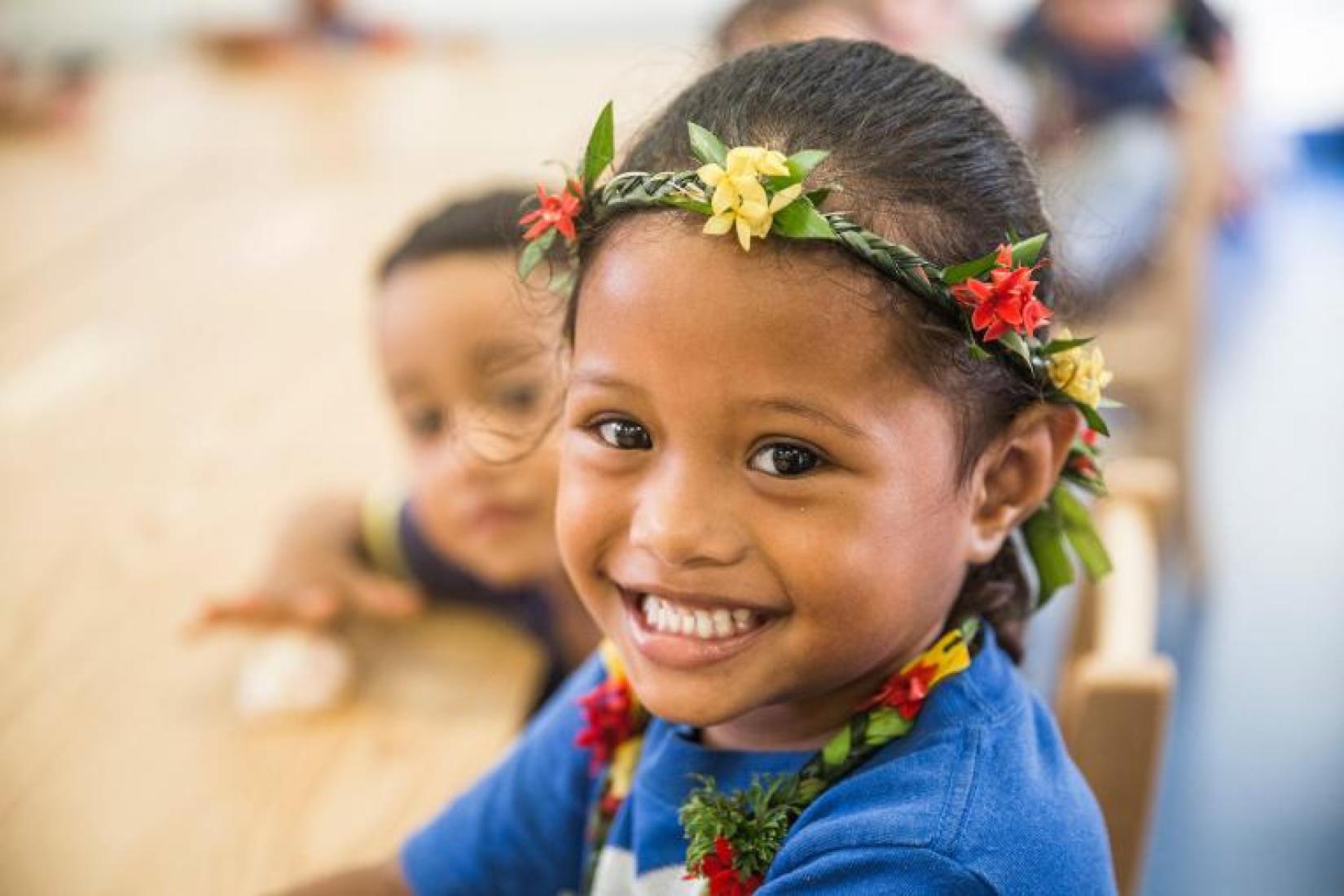Tonga
Tonga is a Polynesian kingdom of over 170 South Pacific Islands, 36 of which are inhabited, with a population of 107,773.[1] The country is predominantly rural, with around 25% of the population living in urban areas. Tonga is a constitutional monarchy and has maintained independence from colonial powers.
[1] World Bank. 2023. Population, total.

According to the World Bank classification, it is an upper middle-income country and has high level of human development,[1] although rates of poverty and inequality are rising amongst the most vulnerable groups. Tonga is reliant on external income through development assistance, loans, and overseas remittances from the large Tongan diaspora.
Overnutrition and associated non-communicable diseases are a major concern in Tonga with childhood overweight estimated at 11.3%[2] while adolescent overweight (10-19 years) is estimated at 57%.[3] Within the adult population, overweight is estimated at 93.2% with 77.1% considered obese.[4]
The World Risk Index 2020 ranks Tonga as the second most at risk country in the world, with very high exposure and high vulnerability to climate change and low coping capacity.[5] Tropical cyclones are the main hazard affecting Tonga,[6] but it is also at high risk of earthquakes, tsunamis, storm surges, and flooding due to increased sea levels.
Tonga has not ratified The Convention on the Elimination of all Forms of Discrimination Against Women. Women’s political participation is limited, and women’s work force participation is highest in the informal sector. More than 3 out of 4 (77%) women have experienced physical or sexual violence in their lives.[7]
Current data indicates that Tonga will miss the targets of the 2030 Agenda for Sustainable Development. While there has been progress, many Sustainable Development Goals (SDGs) are significantly off track, with decreasing trends in SDG 2, Zero Hunger.[8]
Development goals and objectives
The UN has been present in Tonga since 2011. The United Nations Pacific Sustainable Development Framework 2023-2027 outlines the UN’s development priorities and localized responses in 14 Pacific Island countries and territories, including Tonga, to advance the global 2030 Agenda for Sustainable Development. The UN Pacific Sustainable Development Framework complements the Tonga Strategic Development Framework 2015-2025: “A More Progressive Tonga: Enhancing Our Inheritance”; particularly in environmental and natural resource management, infrastructure and technology, and social, economic and political institutions.
[1] United Nations Development Programme (UNDP). 2022. Human Development Index. https://hdr.undp.org/data-center/human-development-index#/indicies/HDI
[2] Ibid
[3] United Nations Children´s Fund (UNICEF). 2019. The State of the World’s Children (SOWC). Children, Food and Nutrition: Growing Well in a Changing World.
[4] World Bank. July 2014. Non-Communicable Diseases (NCD) Roadmap Report
[5] World Risk Report 2020, Op. Cit. https://reliefweb.int/sites/reliefweb.int/files/resources/WorldRiskReport-2020.pdf
[6] UNCDF. 2021. Economic Impacts of Natural Hazards on Vulnerable Populations in Fiji, Papua New Guinea, Samoa, Solomon Islands, Tonga, and Vanuatu.
[7] Ma`a Fafine mo e Famili. 2012. Domestic Violence Study. Op. Cit.
[8] Sachs, J.D., Lafortune, G., Fuller, G. (2024). The SDGs and the UN Summit of the Future. Sustainable Development Report 2024. Paris: SDSN, Dublin: Dublin University Press. 10.25546/108572

